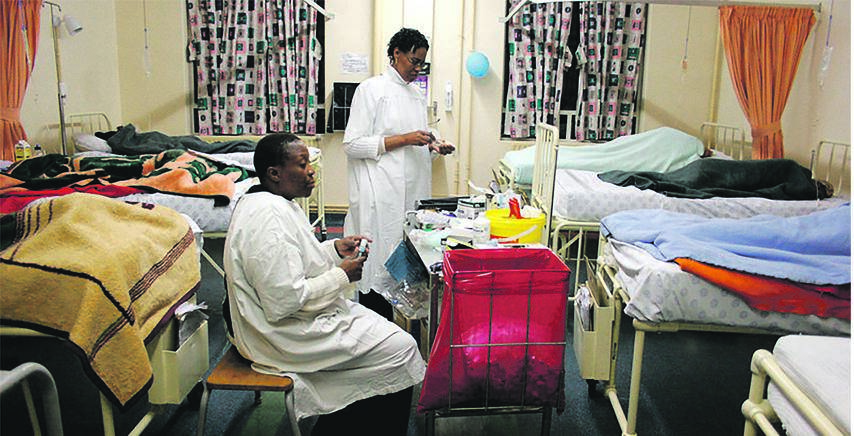
Scepticism over funding and capacity are just some of the pressing concerns cited in three recent studies targeting SA’s professionals.
A total of 72% of professionals surveyed say they will pack their bags and go overseas if the National Health Insurance (NHI) scheme is implemented in its current form.
This is according to a study conducted by mutual financial services company PPS among 3 300 graduate professionals who are policyholders.
PPS conducted the independent survey among doctors, dentists, attorneys, accountants and engineers. It included the results in its written parliamentary submissions regarding the NHI Bill.
According to the survey, which is also being distributed among the rest of PPS’s members, 15% of respondents said they were uncertain about emigration, while only a handful said they would definitely stay in South Africa.
The two main reasons given for possible emigration as a result of the NHI were that working conditions would worsen and medical professionals would lose income.
According to PPS, 58% of 2 905 medical professionals who participated in an online questionnaire were negative about the NHI scheme. Their greatest concerns were insufficient capacity and infrastructure, the negative effect the NHI would have on taxpayers and government’s ability to successfully implement the plan.
Only 10% were positive, saying they believed that the NHI would improve primary healthcare, give all citizens in the country access to healthcare and ensure the equitable distribution of funds for healthcare.
Of the medical professionals who participated in the PPS survey, 31% said the NHI could create more positions for specialists because of greater demand, but 32% said private specialists would lose business.
In addition, 31% said corruption would deplete funds for specialist services, while 24% expressed fears that the workload under the NHI would be too severe.
PPS said medical practitioners’ opinions about the NHI were obviously important, but it had specifically asked for the opinions of other graduate professionals as well, given the important role they also play in the economy.
PPS’s presentation to Parliament comes shortly after two other damning surveys:
The SA Medical Association (Sama), which represents about 17 000 doctors, conducted a survey in November in which 38% of its members said they were considering emigrating as a result of the NHI, while 17% expressed uncertainty.
More than 100 members of Sama participated in the survey. Of these, 67% said they did not support the NHI in its current form.
Sama members also expressed concern about corruption and insufficient accountability (91%) and about the management of the NHI fund (83%).
Given these findings, Sama said during its parliamentary submission that it could not support the bill as it stands.
Sama also wants medical aids to be allowed to offer the same cover as the NHI instead of playing a supplementary role, as prescribed by the current bill.
A large percentage of Sama doctors who participated in the study (37%) currently work exclusively in the public sector, while another 21% of respondents work for the state part time. The remaining 42% are in private practice.
In the last quarter of last year, trade union Solidarity also found that South Africa could lose about 62% of its healthcare workers. One in five medical practitioners who participated in its study said that they had already taken steps to begin the emigration process.
A further 42% of respondents said they would take steps to emigrate if the NHI was implemented.
Solidarity sent its questionnaire to 7 443 healthcare practitioners. An estimated 9% responded.
Of these, about 80% of respondents were sceptical about NHI – up from the 71.9% who were negative about the scheme when the same study was conducted in 2018.
The deadline for written submissions on the bill has passed, but the public participation process is ongoing.
Critics of the bill say it is unclear how the NHI will improve public healthcare, and they have expressed concern over the fact that government appears unable to say how much it will cost.
But Health Minister Zweli Mkhize is adamant that the NHI is the solution to South Africa’s healthcare woes. On Wednesday, he said there would be little difference between the quality of public and private healthcare under the scheme, News24 reported.
 | ||||||||||||||||||||||||||
Get in touchCity Press | ||||||||||||||||||||||||||
| ||||||||||||||||||||||||||
| Rise above the clutter | Choose your news | City Press in your inbox | ||||||||||||||||||||||||||
| City Press is an agenda-setting South African news brand that publishes across platforms. Its flagship print edition is distributed on a Sunday. |




 Publications
Publications
 Partners
Partners








